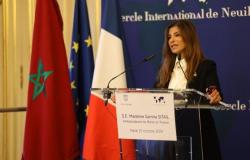A hotly contested decision
The Ministry of Health announced a draft decree aimed at de-reimbursing antigenic tests, a measure which sparked an outcry among health professionals. The Union of Community Pharmacists’ Unions (USPO) reacted firmly, describing this decision as “incomprehensible in the midst of an epidemic”. This initiative, which also includes the elimination of reimbursement for masks for immunocompromised people, comes as France is facing a double epidemic of influenza and bronchiolitis.
Tensions in hospitals, already saturated, and the difficulties of medical practices in absorbing patient demand are aggravating the situation. These choices are considered incompatible with the imperatives of public health prevention, even though the government is calling for an intensification of influenza vaccination.
A counterproductive measure for prevention
Antigen tests, widely used to rapidly detect respiratory infections, play a fundamental role in the screening strategy. Their current reimbursement makes it possible to carry out combined COVID-flu-RSV tests at an affordable cost, an essential solution to limit the spread of epidemics.
In its press release, the USPO warns that “the dereimbursement of antigen tests will deprive patients of an essential tool for early and effective detection of respiratory infections”. These tests not only allow rapid diagnosis, but also offer an opportunity to educate patients about barrier gestures and the importance of vaccination.
The delay taken by the High Authority of Health (HAS) in the evaluation of the combined Rapid Diagnostic Orientation Tests (TROD) aggravates the situation. Planned since 2022, this analysis is still pending, limiting possible responses to current epidemics.
Health professionals, between dismay and feeling of betrayal
Pharmacists, essential players during the health crisis, feel abandoned by this decision. However, they had been on the front line to guarantee continuity of care, ensure the availability of tests and support vaccination campaigns. The USPO considers this initiative as “a real stab in the back of health professionals”, denouncing a lack of recognition for their past and current mobilization.
This measure could also discourage patients, particularly the most vulnerable, from using screening tests. As a result, infections could be detected late, increasing the risk of serious complications and transmission.
The call for a change of direction
Faced with these concerns, the USPO urges the government to reverse this decision and maintain reimbursement for antigen tests. For pharmacists, these diagnostic tools are essential to prevent complications of respiratory infections, particularly in a context of high pressure on the health system.
This debate illustrates the dilemmas between budgetary constraints and health requirements. As France faces multiple epidemic crises, abandoning reimbursement for antigen tests could compromise prevention efforts and worsen tensions in hospitals. A review of this decision therefore seems crucial to preserve public health and support professionals on the front line.





